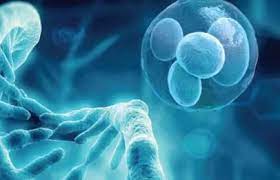 Regenerative medicine is the science of replacing human and animal cells. The goal is to replace the human body’s organs and tissues. It is an exciting new field of medicine that is expected to improve human health and longevity. Although it is still a long way off from becoming a common practice, it can be a life-saving solution for patients with life-threatening conditions. Find additional information at regenerative medicine Eugene
Regenerative medicine is the science of replacing human and animal cells. The goal is to replace the human body’s organs and tissues. It is an exciting new field of medicine that is expected to improve human health and longevity. Although it is still a long way off from becoming a common practice, it can be a life-saving solution for patients with life-threatening conditions. Find additional information at regenerative medicine Eugene
There are several important factors to consider when deciding on whether to use regenerative medicine. First, it should be remembered that the treatments are still experimental, and the cost may be high. Nonetheless, the growing public interest in regenerative medicine has fueled substantial private-sector investments. While only a handful of regenerative treatments have been approved by the FDA for use, the number is expected to increase dramatically in the next few years. Secondly, there is limited regulatory oversight and enforcement in the field, which has created opportunities for unscrupulous businesses to sell products without full evaluation.
Third, regenerative medicine has a great potential to help people with organ failure. Organ transplants are costly and time-consuming, and often require a donor organ, which is not always available. Furthermore, many people die before they can receive a transplant. In addition, regenerative medicine is already helping people with congenital defects. By using patient-derived cells and tissues, regenerative medicine could help solve this dilemma and make transplantation of healthy organs a reality.
A variety of stem cell and platelet-rich plasma therapies can be applied to a patient’s body to restore a damaged tissue. These therapies use concentrated levels of the body’s natural healing agents to stimulate and support new tissue growth. This treatment method can also prevent surgery. It helps patients return to a normal lifestyle within a short period of time.
Regenerative medicine is a growing field of research. The goal is to replace human and animal cells and organs with new ones. This technology has the potential to regenerate damaged tissues and organs, allowing them to regain their function and structure. It also has the potential to allow scientists to grow organs and tissues in the laboratory. Whether this is a practical solution or an unattainable dream, one in three Americans could benefit from regenerative medicine.
In regenerative medicine, stem cells are harvested from the patient’s own fat, blood, and bone marrow. They are then isolated and processed by a centrifuge machine. The cells are then injected into the damaged body part. In the case of a damaged spinal disc, these cells will grow into new, healthy cells and repair the damaged tissue.
Regenerative medicine is a promising field of medicine that can help cure a range of diseases. The underlying causes of disease are being solved. Researchers are using stem cells as a treatment for disease, and they have a potential to cure numerous illnesses. This science is being explored worldwide.
Contact Info
QC Kinetix (Eugene) 920 Country Club Rd
Suite 240B Eugene
OR 97401 (541) 236-3775
